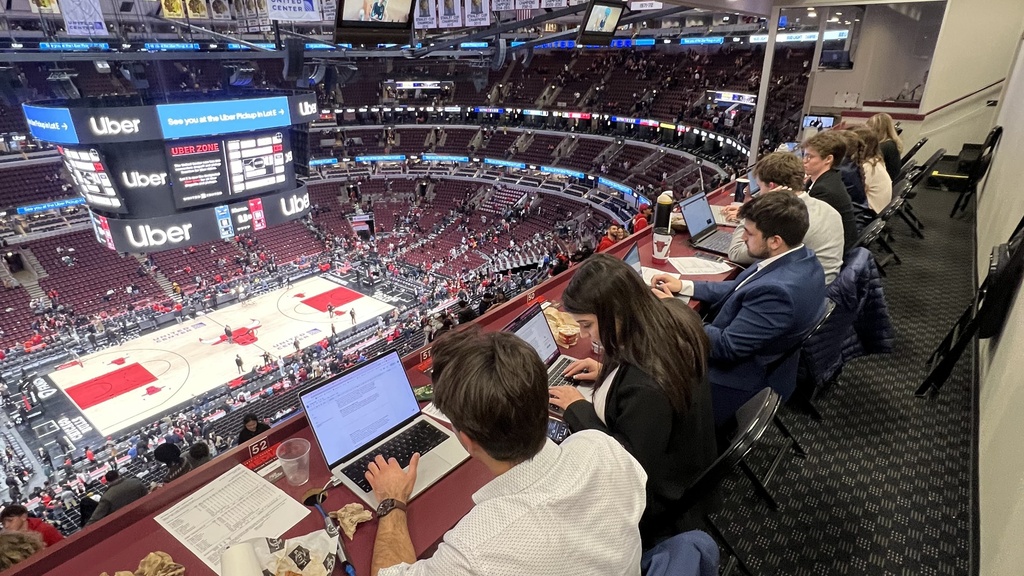Main navigation
Why Professional Practice?
Get your hands dirty.
Professional practice, or practicum, refers to experiences that are structured to give students guided, introductory opportunities to engage in media production and operation in a semi-professional environment. Where in-class preparation complements off-campus work. These educational experiences are led by faculty in the School of Journalism and Mass Communication who mentor, coach and supervise students as they apply academic coursework in pragmatic situations, often with real-world clients. As a result, students gain foundational experience that prepares them for future careers in the industry.

"This past week has been nothing short of transformative. The insights I’ve gained are invaluable, and the opportunity to connect with professionals who were once in our position as college students was especially inspiring."
SCRIPT Requirement:
Courses designated as Practicum by the University of Iowa and administered by the School of Journalism and Mass Communication will fulfill the SCRIPT experiential learning requirement for students in the major. These courses typically have a prefix of JMC or SMC and may vary from year to year.
What does professional practice look like?
Professional practice courses, or practicums, administered by the School of Journalism and Mass Communication are shaped by dynamic, faculty-led experiences that bridge classroom learning with real-world application. Experiences range from short-term immersive workshops to semester-long collaborations with industry clients. No matter the experience, students are always guided by faculty who bring valuable professional expertise into the learning environment.

Podcast Production Studio
A student-run production studio is in the works, providing end-to-end strategic podcast production solutions. Get ready to listen, learn, and be inspired by the next generation of audio innovators. Stay tuned for enrollment information!
What are my course options?
Courses designated as Practicum by the University of Iowa and administered by the School of Journalism and Mass Communication will fulfill the SCRIPT experiential learning requirement for students in the major. Review the registration information for each course to determine enrollment eligibility.
| Course | Term | Title | Subtitle | Hours |
|---|---|---|---|---|
| JMC:2400:0001 | Spring | Journalism and Mass Comm Media Experience | Washington D.C. Media Law | 1 |
| JMC:2400:0001 | Summer | Journalism and Mass Comm Media Experience | ISLE Documentary Workshop | 3 |
| JMC:2400:0002 | Summer | Journalism and Mass Comm Media Experience | Hinterland University | 3 |
| SMC:2400 | Fall/Spring | Sport Media and Culture Experience | N/A | 1-3 |
| JMC/SMC:2405 | Winter | Chicago Sports Media Experience | N/A | 3 |
| JMC:2410 | Fall/Spring | Adler Agency | N/A | 3 |
| JMC/SMC:2415 | Fall/Spring | Prep Sports Report | N/A | 1-3 |
Financial Support
The School of Journalism and Mass Communication invests more than $50,000 annually to help offset or eliminate the costs associated with participating in faculty-led media experiences outside the classroom. These funds are used to cover student travel, lodging, meals, and registration fees.






